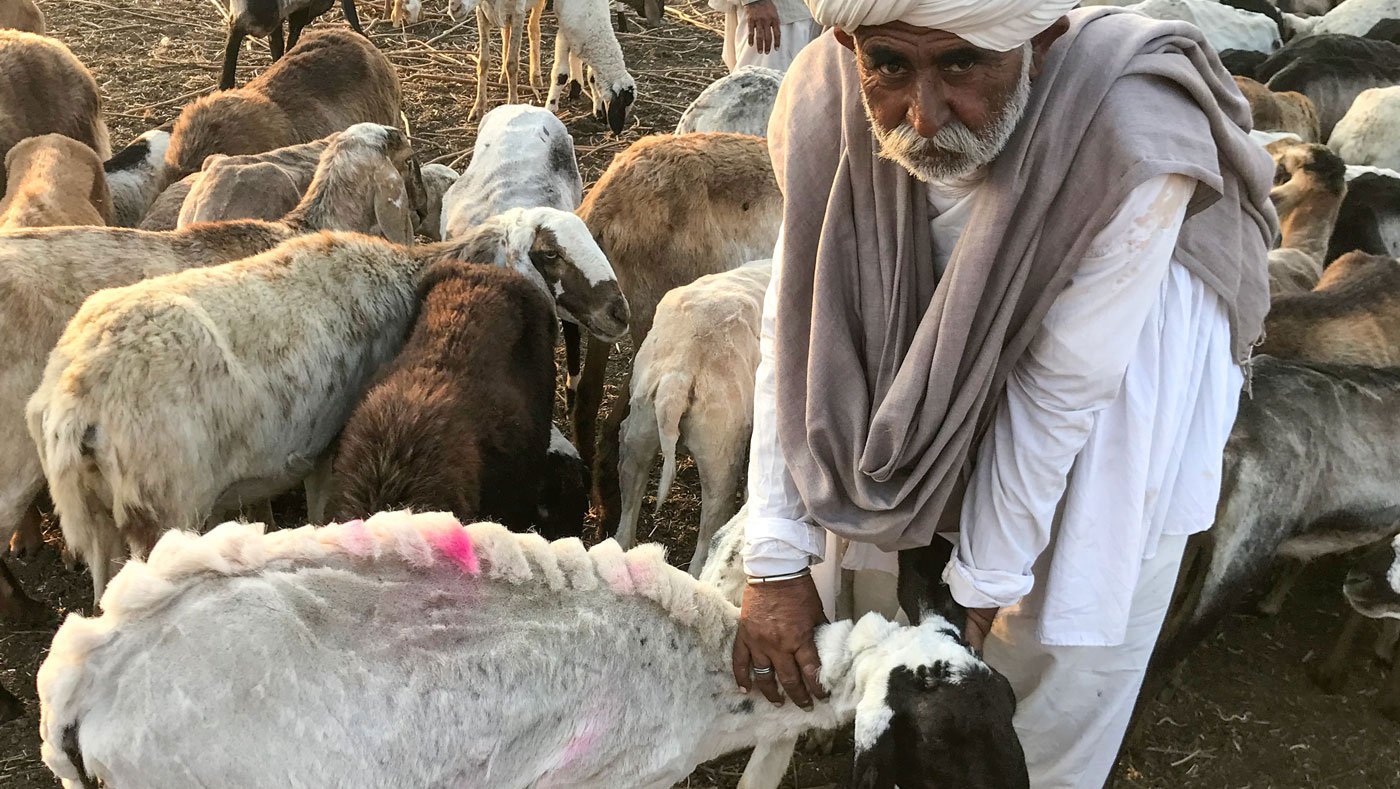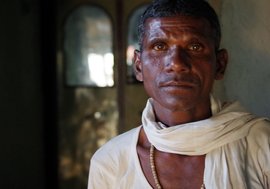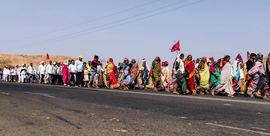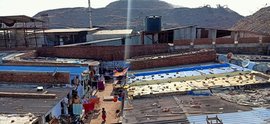“The names we Rabaris have for stars are different from those you have,” observes Mashrubhai. “ Tumhara Dhruv Tara , hamara Parodiya [Your polestar is our Parodiya].”
We are at his dera , a temporary settlement in Denoda village of Wardha district. It is 60 kilometres from Nagpur, and 1,300 km from Kachchh, the land he calls home.
Dusk is falling on this Rabari dera . It’s early March, a season of transition from winter to summer when the orange hues stay a little longer in the evening sky. The fiery blooms of the flame of the forest, palash or kesudo ( Beautea Monosperma ), adorn the earth in shades of saffron. Holi, the festival of colours, is around the corner.
Mashru mama , as he is fondly known among his folks, and I are looking up at the clear evening sky of this Vidarbha region. We are seated on his cot in the middle of a cotton field, talking about everything under the sun: stars, constellations, changing climate and ecology, myriad moods of his people and animals, the life of a nomad – rugged, tough, always on the move, legends and folk-stories that he knows, and more.
The stars hold a special significance among Rabaris as they rely on them to guide their routes, especially at night. “The seven-star constellation, Saptarshi is Haran [deer] for us,” he explains. “The seven stars fade away in the wee hours of the day, but while it is still dark, they announce the arrival of a new dawn, new challenges, and many possibilities,” he says philosophically.
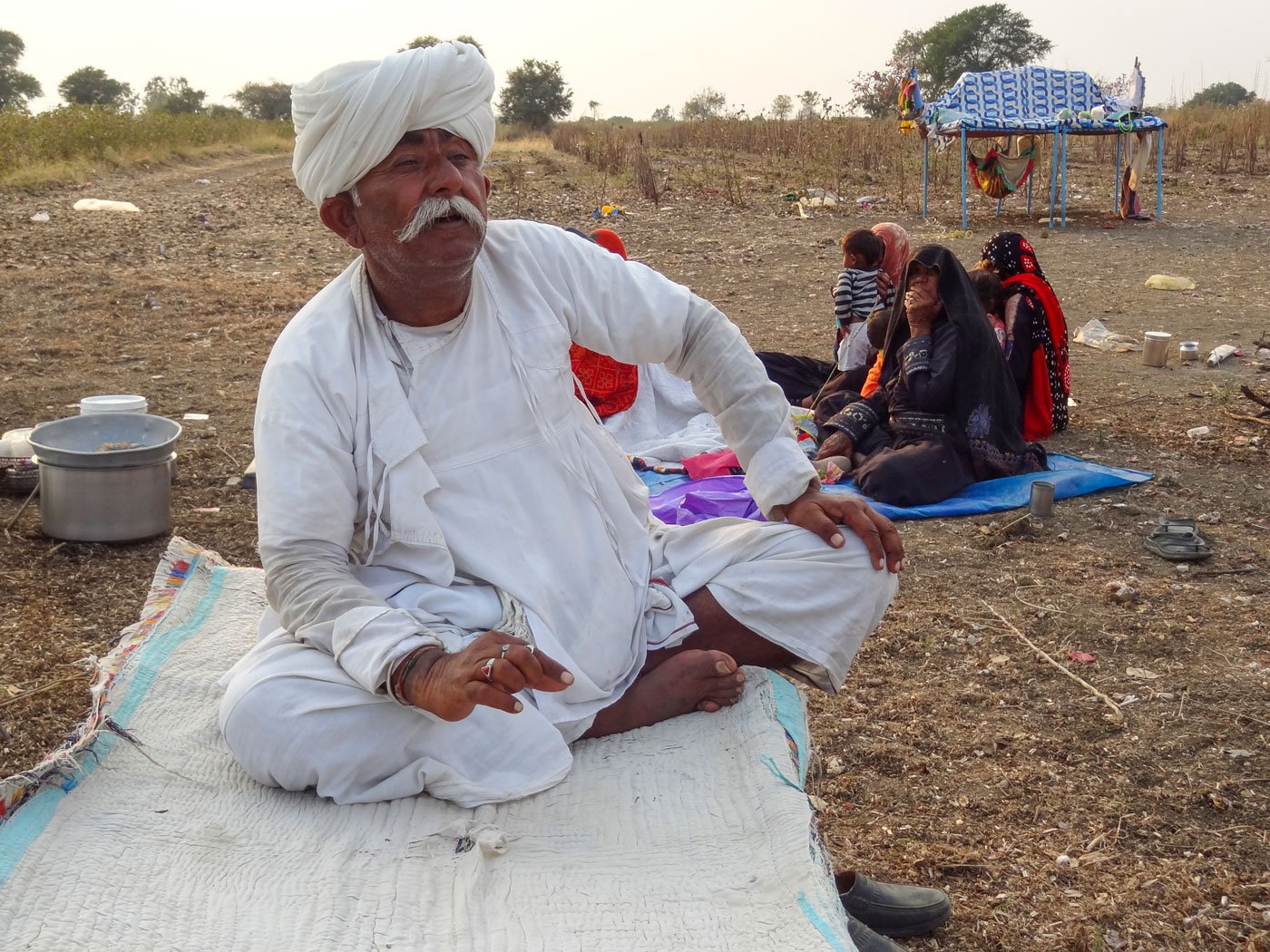
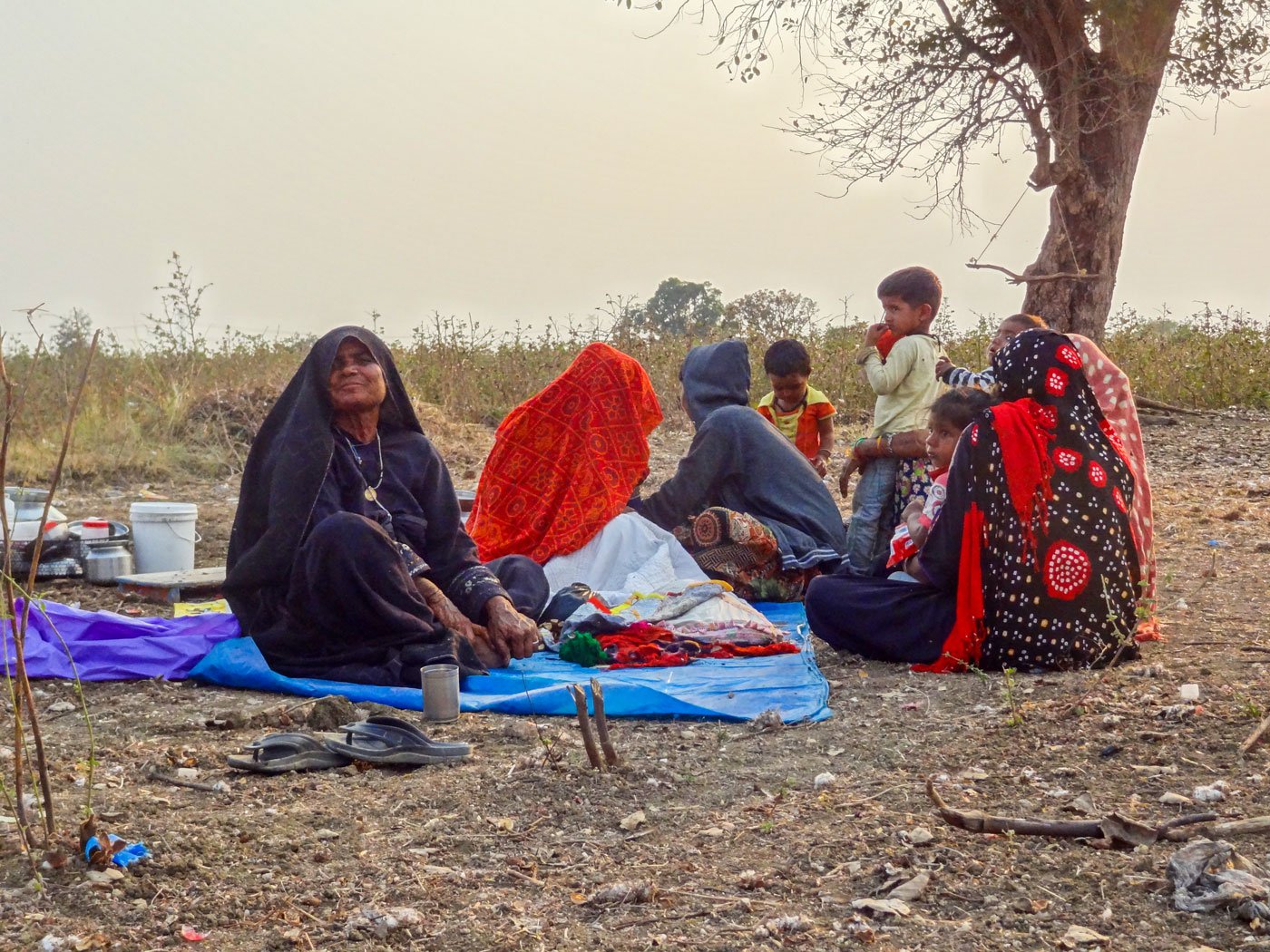
Mashru Rabari (left) and other members of the Rabari community at their dera , a temporary settlement in Denoda village of Wardha district. On their annual migratory route, the dera moves around Nagpur, Wardha, Chandrapur and Yavatmal districts and the neighbouring areas
Mashru mama – a tall well-built man in his 60s with a thick moustache, greying hair, big palms, and a big heart – is the eldest member of the dera. He and five other families that form the dera , arrived here a couple of days ago. “We are here today and will be in Nagpur district 15 days from now. You’ll find us near Pandharkawada in Yavatmal when the rains arrive. We travel to familiar places round the year and stay on farms,” he tells me.
Throughout the year his home remains an open field under the sky.
*****
Rabaris are a semi-pastoralist community originally from Kachchh in Gujarat. Many like Mashru mama , have made Vidarbha in central India, their home for generations now. They rear large herds of goats, sheep and camels. Most Rabaris who stay back in Kachchh work on their land; others like Mashru mama are forever on the move and live in camps.
Mashru mama estimates that there are over 3,000 such dera s all over Vidarbha and neighbouring Chhattisgarh. Each will have a fixed migratory pattern, but the location for their stay is never fixed.
They travel through several districts and raise camps every few days at a different place on their migration routes. It is difficult to say how often they camp enroute, but one would find them move roughly between 50-75 different sites in a season. One day they are in a village in Wardha district, the next they will be near Wani in Yavatmal district. The duration of their stay in each place can vary from anywhere between a couple of days to a fortnight, depending on the season and their relationship with the local farmers.
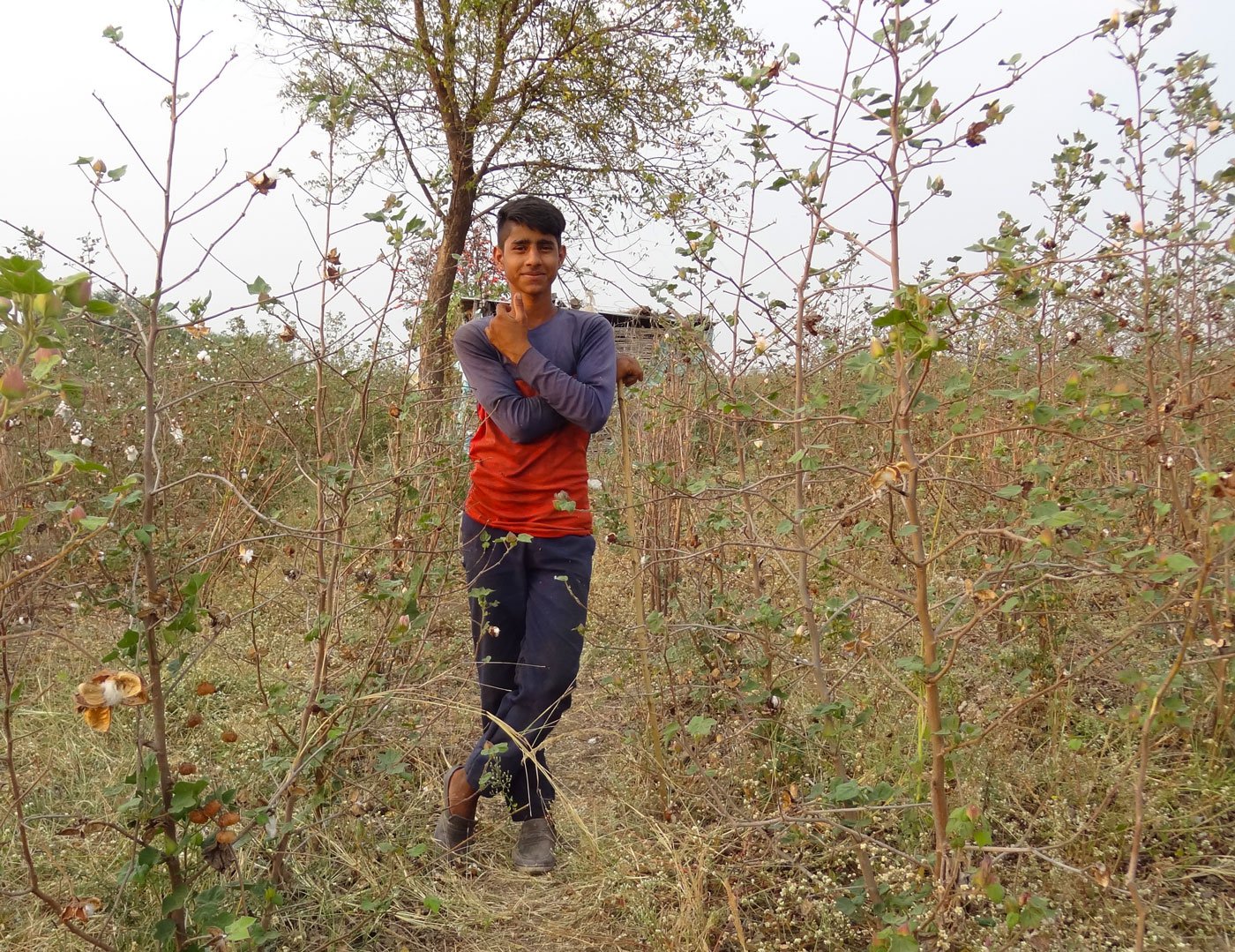
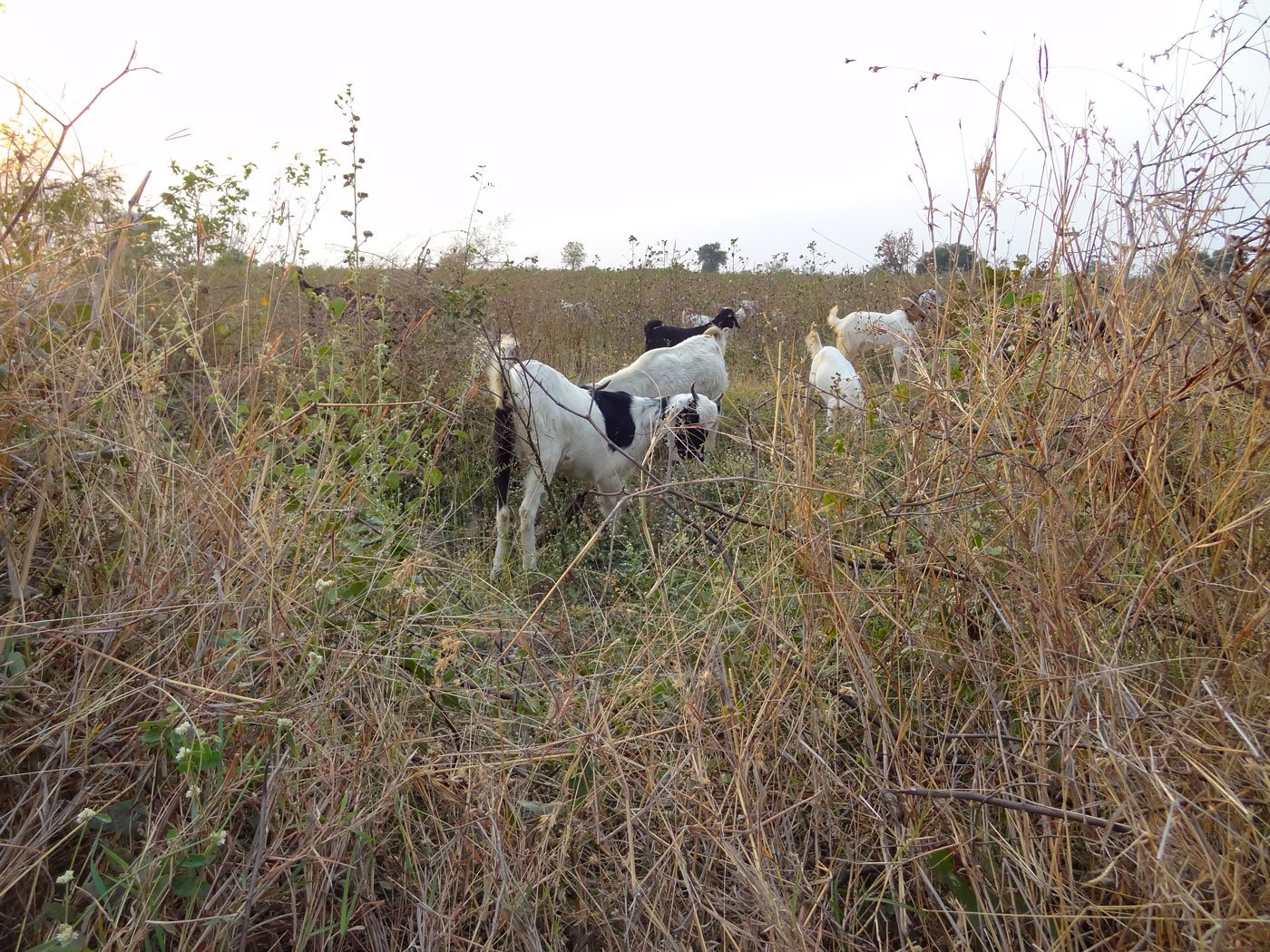
Left: Young Rama helps take care of the animals and also scouts for the next stop. Right:
Mashru
mama
rears a large herds of goats, sheep and camels.
The farmers and Rabaris have a symbiotic relationship. The farmers allow the herd to graze freely, feasting on the weeds or crop foliage that have little value for farmers, and in exchange, the Rabaris leave their field more fertile with the droppings of small animals.
Sometimes farmers will even pay handsome sums of money to the Rabaris for them to park their herds of sheep and goat on the farm from April until July. The exact amount of money they receive depends on the number of animals, but some estimates put it at Rs. 2-3 lakh a year, as stated in a yet to be published penning study done by the Nagpur-based Centre for People’s Collective. Farm productivity rises significantly post-penning.
Mama owns more than a thousand animals – that’s his trump card.
Three of his camels – of the Kachchhi breed which is distinct from the swimming Kharai camels – have just returned from the nearby shrub forests. They had been out grazing with one of mama ’s trusted hands – Rama. Apart from tending to the animals, he also helps with scouting for the next stop. From where we are sitting and chatting, the camels can barely be seen, but we hear their grunts coming from a nearby tree where their shadows squat in the fading light.
On a cotton farm opposite his dera , a stone’s throw away from the current camp, his sheep and goats are feasting on fresh green foliage. You’ll always find a dog at a dera and here, Moti, mama's dog is playing boisterously near our charpoy covered with hand-woven soft johad (blanket) made by the Rabari women.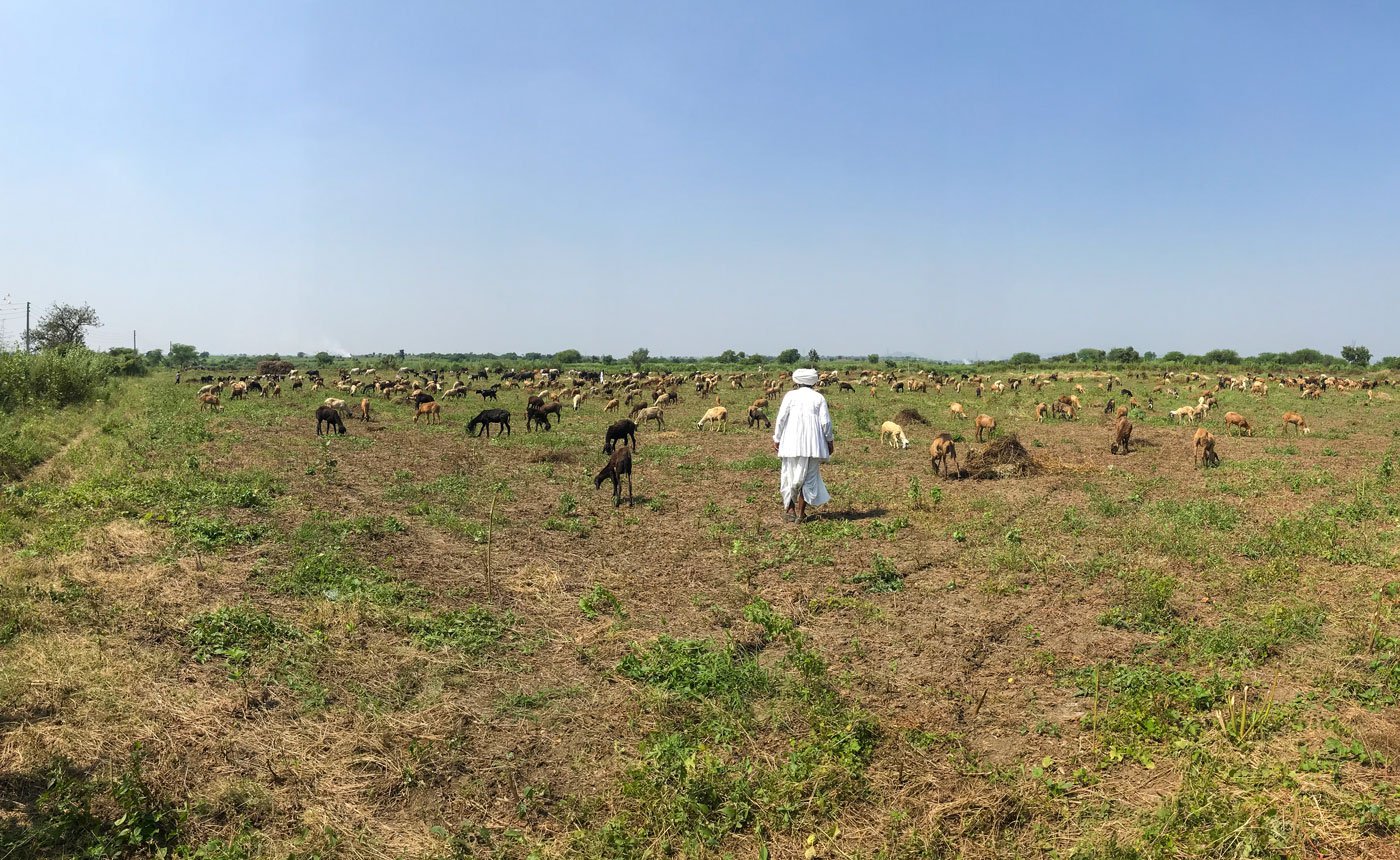
Mashru mama owns over a thousand animals. 'He says, '' They are softened by the winters and rains, hardened by the heat waves in the summers'
*****
Many of the rain-fed, single crop farms, mostly owned by small farmers in the eastern part of Maharashtra are barren now. Cotton has been fully harvested. Winter crops – green gram, some wheat here and there and jowar (sweet sorghum) – are in the last lap, about to be picked in a fortnight. Mashru mama will move in a couple of days to a new farm, his sheep and goats having devoured the last remaining green foliage of this farm.
“I don’t have an address here,” Mashru mama says. When it rains, the men and women of the dera , about 15 to 20 close relations, take shelter below the charpoy covered with tarpaulin sheets. His camels, sheep and goat herds are washed in the rain. “They are softened by the winters and rains, hardened by the heat waves in the summers. Rabaris,” he says, “are the original weather keepers.
“The only constant in our life is uncertainty. There is certainty about that,” he laughs. His dera moves around Nagpur, Wardha, Chandrapur and Yavatmal districts and the neighbouring areas. “Monsoon is changing. Forests have gone. Trees that once stood on the farms have perished.” Mashru mama has seen the agrarian crisis and the worsening fate of the peasantry at close quarters. While there have been sweeping economic changes, he says, a set of complex ecological and climatic factors have also had a role to play.
The changing climate is a bad omen, according to Mashru mama , messing up farms, water, forests and animals. Some of their old spots are now in crisis. They don’t see the green foliage and grass in the region as much as they did about 30 years ago, he explains. It has consequences for his herds. “ Dekhiye prakruti mein problem hua, to aadmi ko pata bhi nahi chalega ki ab kya karna hai [If there is a problem in nature, human beings will not even understand or know how to fix it],” says the veteran nomad.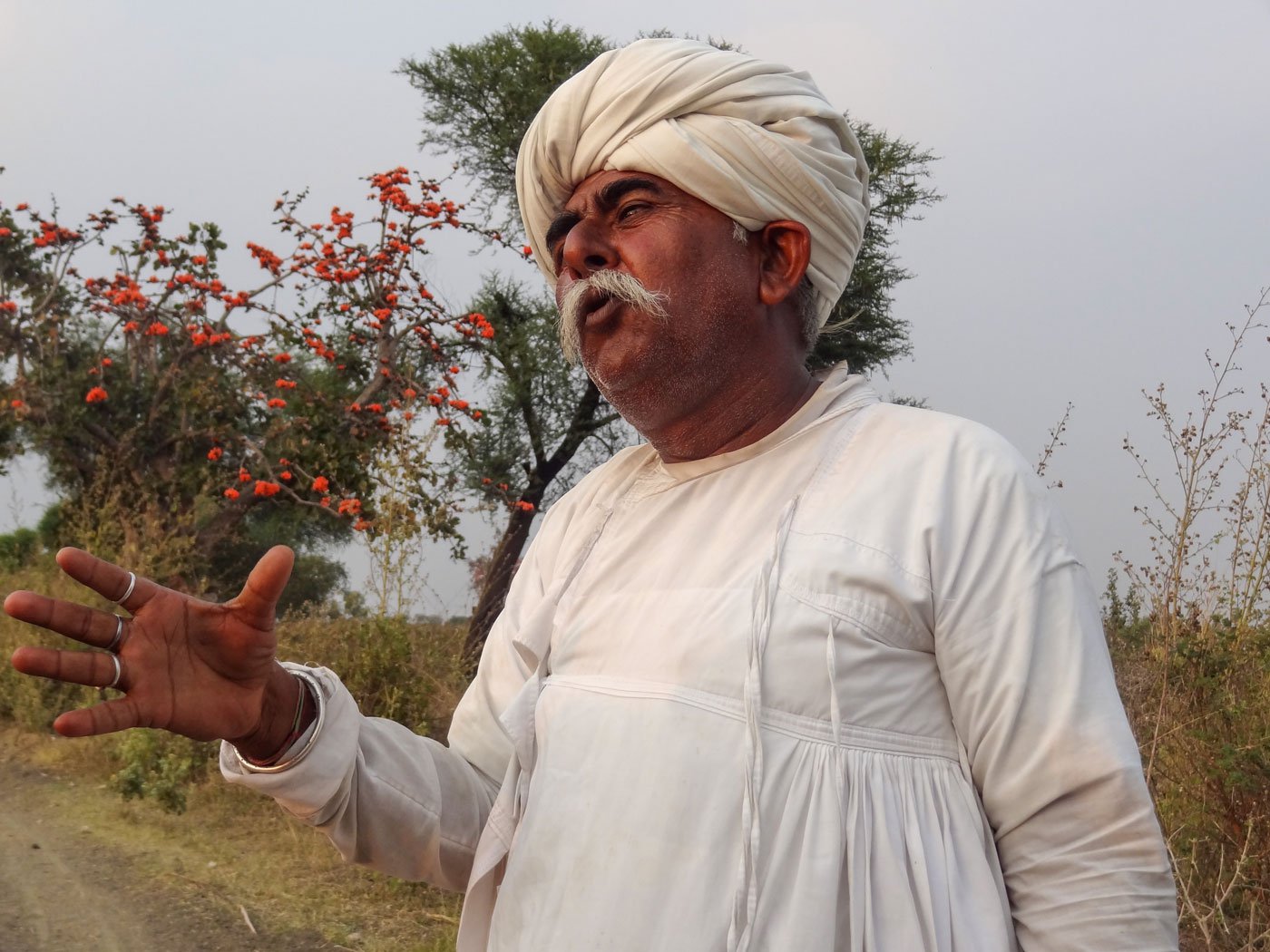
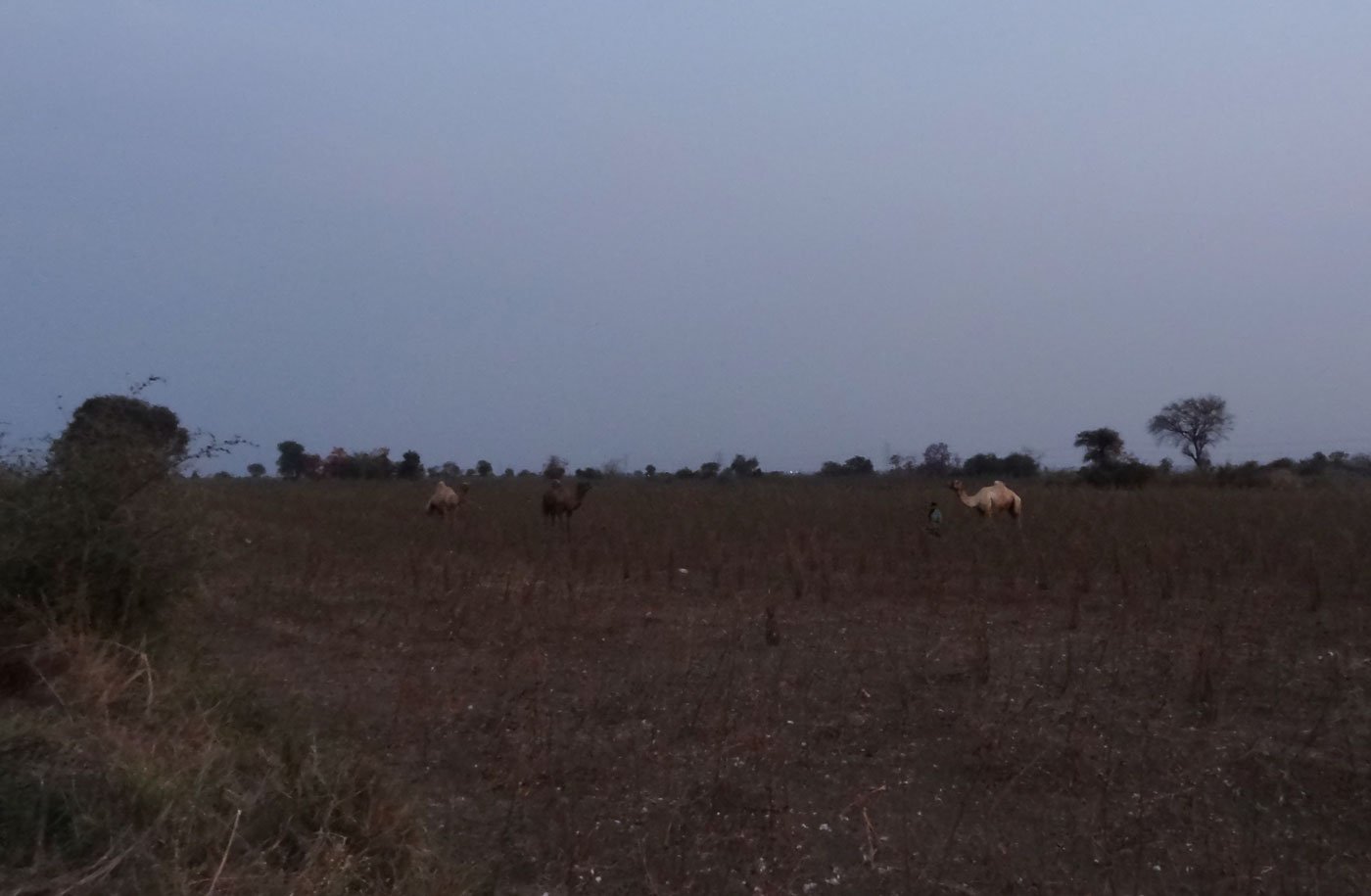
Left: Mashru mama. Right: As dusk slowly settles, camels return to the dera after grazing in the shrub forest nearby
Reflecting sadly upon a recent incident where some Rabari herders were wrongly accused of smuggling camels to slaughterhouses in Hyderabad, he says, “People who don’t know us can’t understand our relationship with our camels.” (Read: Kachchh camels’ custody: ships of the deserted ).
“Camels are our ships, hamara jahaj hai , our God,” he says, “Each dera would have three or four camels to carry their belongings and kids when they are on the move from one place to another,” he says.
The Rabaris of central India are among the least researched; even government circles do not acknowledge that they have been living in the region. Mashru mama was born on a farm in Wardha district. He married and even raised his family on these farms in Vidarbha. And yet no one knows of their presence amidst them.
He can converse in Varhadi, a dialect of Marathi spoken in the western parts of Vidarbha, with the same ease with which he speaks Gujarati. “In a sense I am Varhadi,” says Mashru mama . People may think he is an outsider because he dresses up in the typical all-white Rabari costume: a gathered upper garment, a dhoti, and a white turban. But he is entrenched in local culture and knows the region’s customs and traditions. He can let loose local expletives and slang when needed!
Although the Rabaris live far away from their roots in Kachchh, the tribe has kept their traditions and culture alive. They also maintain close ties with kin back home in Kachchh. Mashru mama’s wife is currently visiting Bhadroi village in Anjar block of Kachchh district. His two elder daughters are married to men from the same tribe there.
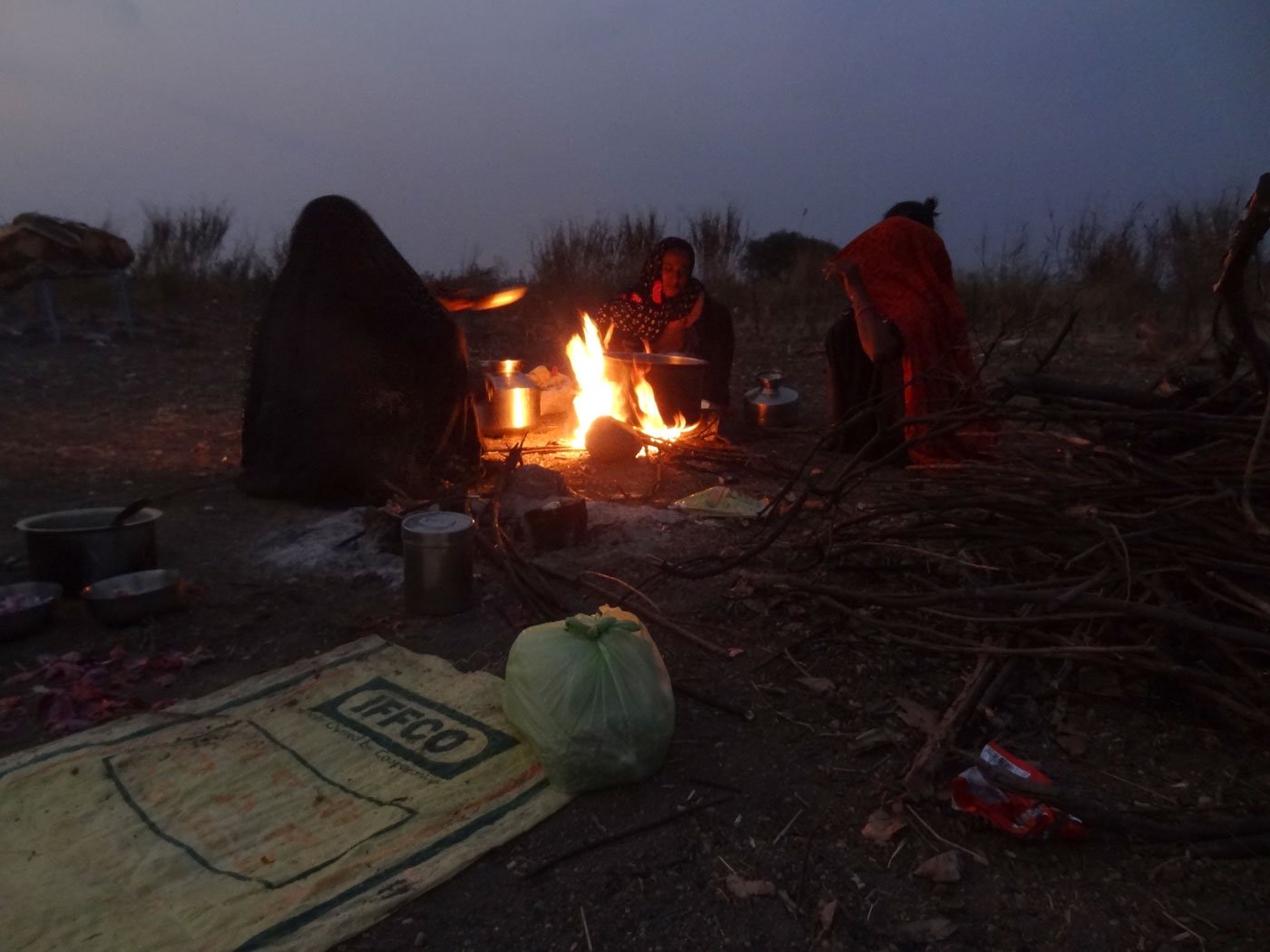
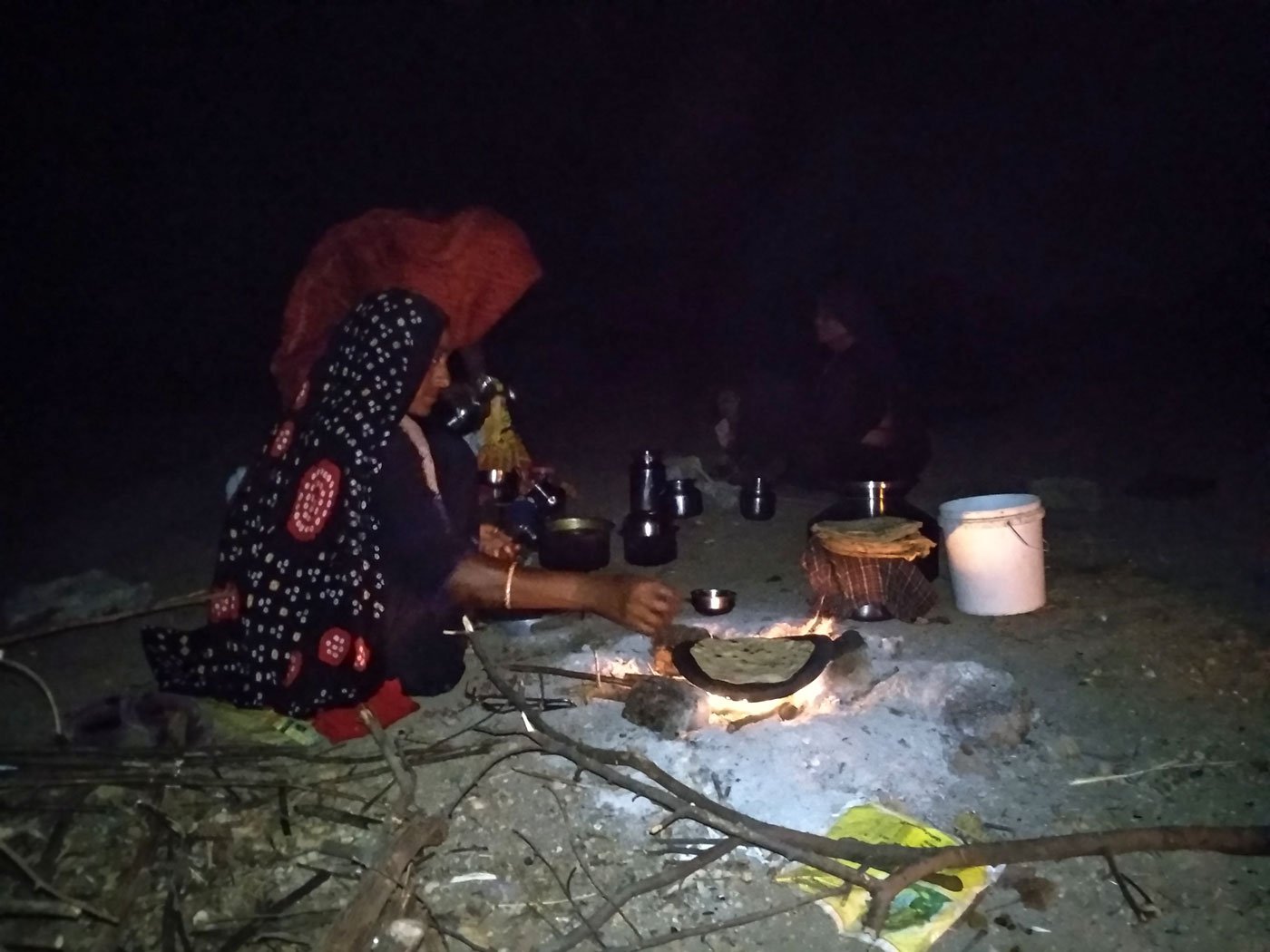
Throughout the year Mashru mama's home is an open field under the sky. W hen guests drop by the women in the dera cook a feast and families eat together
“ Nayi pidhi yaha nahi rehna chahti [the new generation does not want to stay on the farms],” he says. Children from the dera are sent back to stay with the rest of the family, to allow them to go to school, get educated and find jobs. “ Log mehnat bhi nahi kar rahe; daud lagi hai [people are not as hardworking as they were in the past; a mad race is on],” says Mashru mama . His own son Bharat is away in Mumbai, trying to find a steady job having done his diploma in engineering.
His youngest daughter is with him. She along with other five women of the dera have begun making preparations for dinner. Their indistinct chatter is mixed with the sounds of animals and birds. The chulha is lit and a fire throws a golden light on the faces of the women sitting around. They are all dressed in black garments.
Why black for women and white for men?
Mashru mama answers by narrating a legend of the Sati Ma, their reigning community Goddess and a battle that took place aeons ago between them and an aggressor king over a beautiful Rabari princess. The king was enamoured with her and wanted to marry her. But the tribe refused, and a battle ensued in Jaisalmer. It led to a lot of bloodshed, and ended with the princess burying herself in the lap of mother earth for the sake of lasting peace. “We are mourning for her,” he says. “We still do.”
It is pitch dark; dinner is ready. Usually, the five-six families of the dera cook separately. But when guests drop in – as we have this evening, they cook a feast and eat together. Today’s special includes rice kheer made in sheep’s milk, jaggery with ghee made from sheep milk-butter, chapati, a spicy lentil dal, chawal (cooked rice) and buttermilk.
We sit down for dinner in the torchlight of mobile phones.
